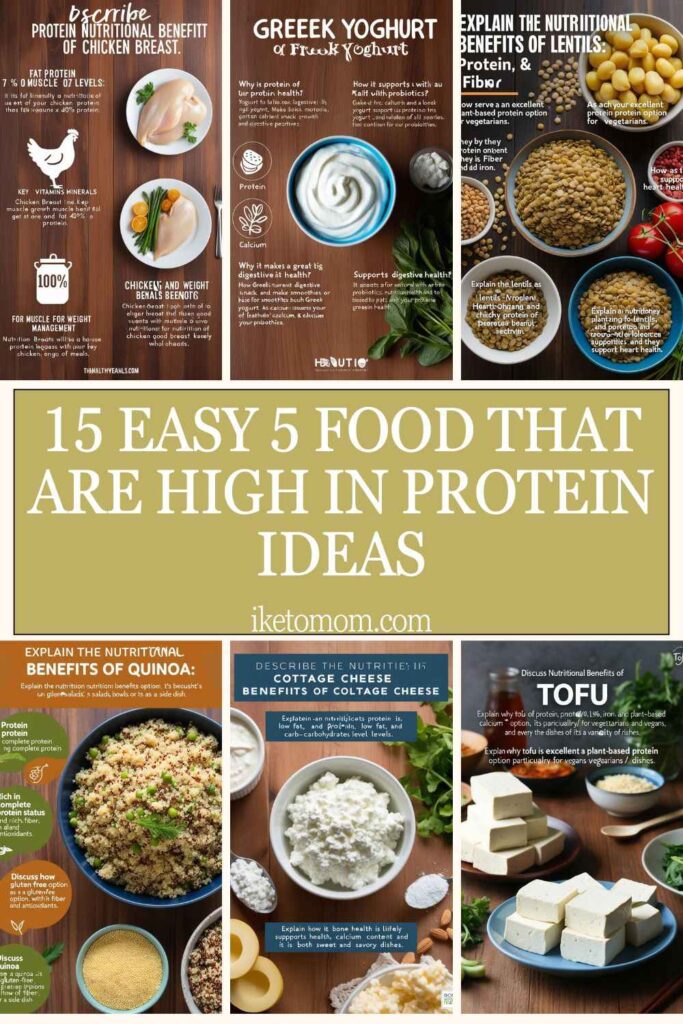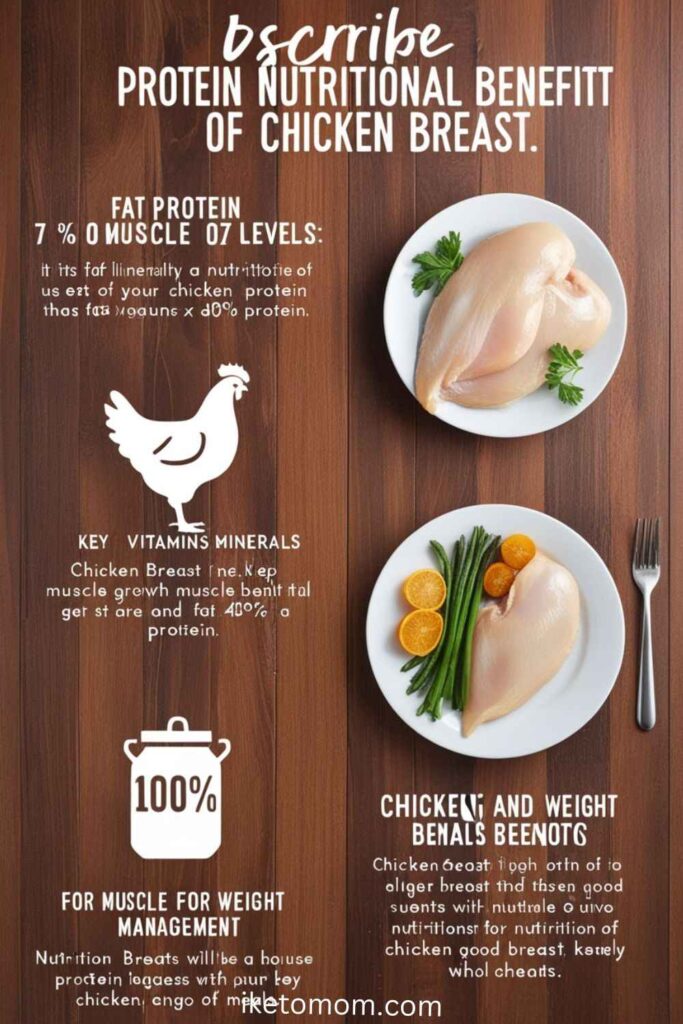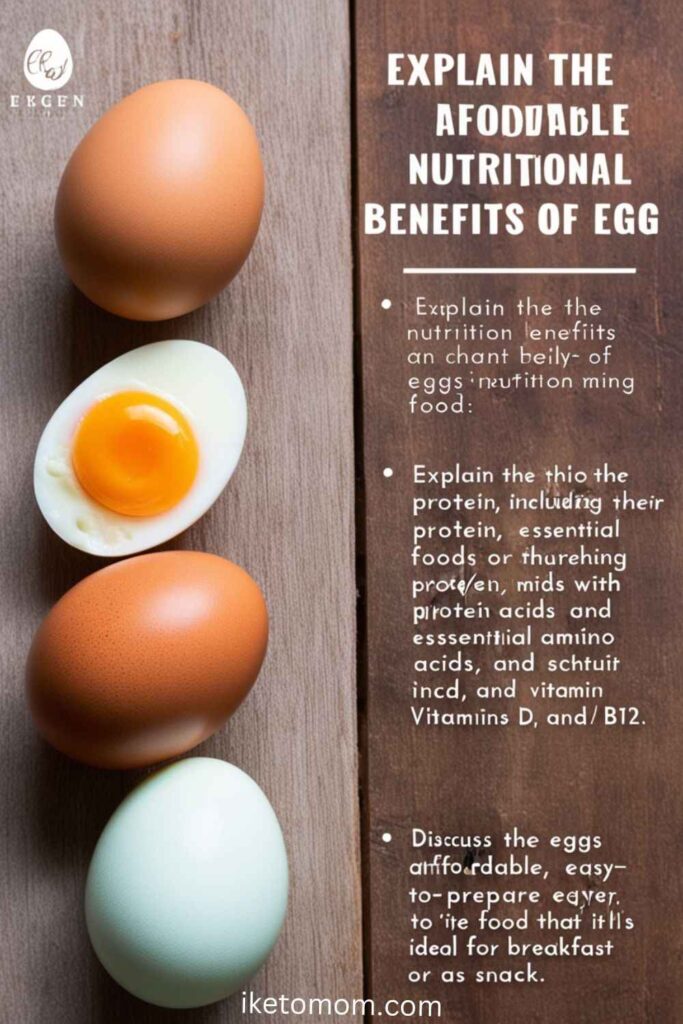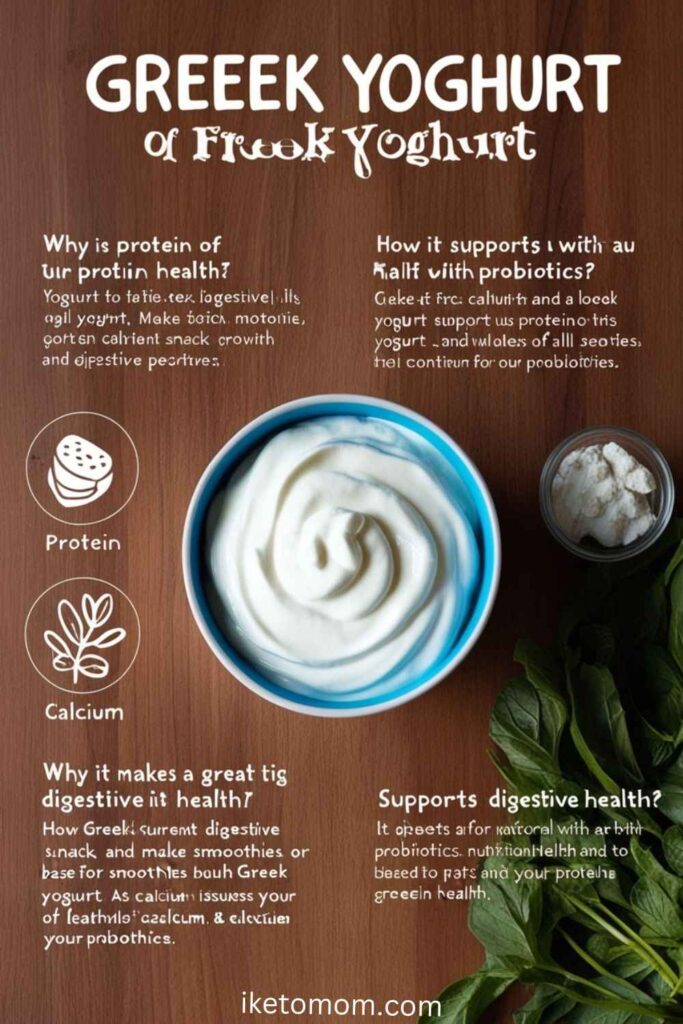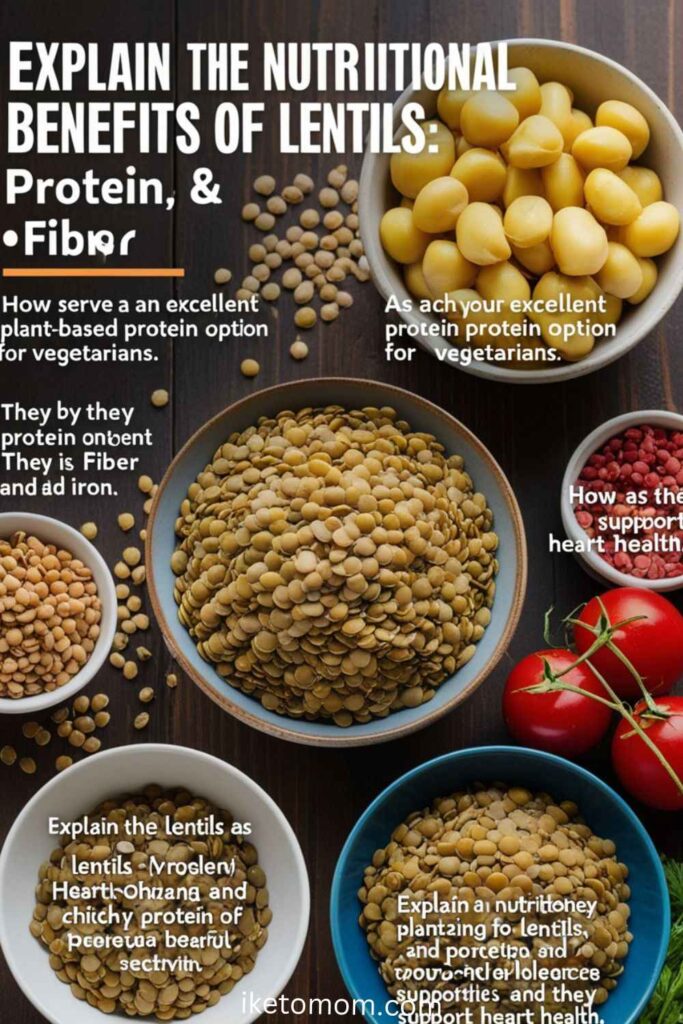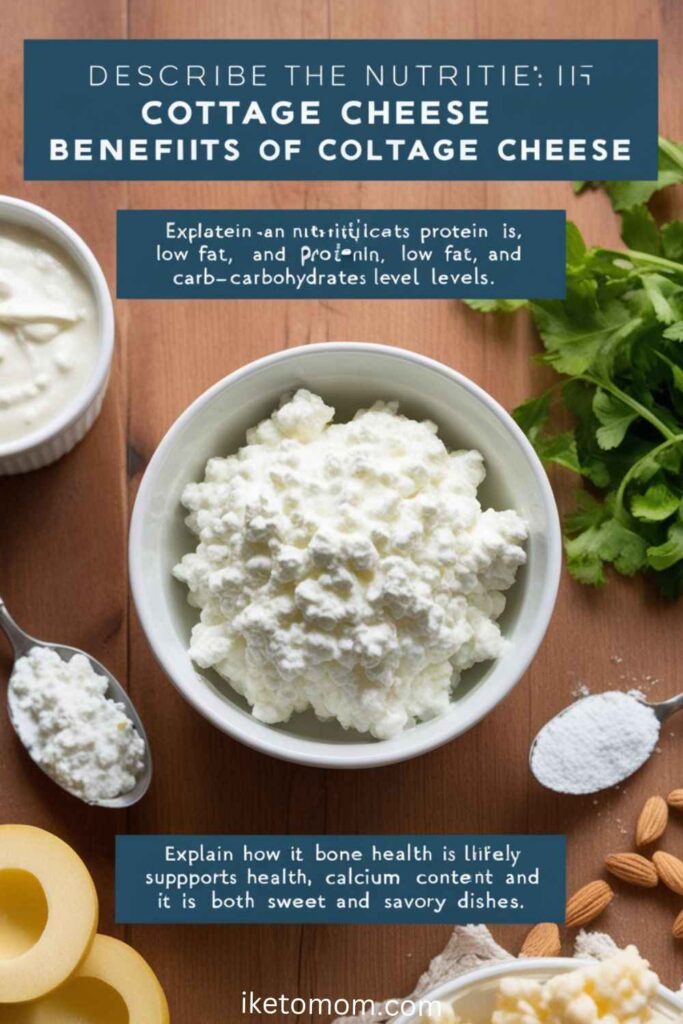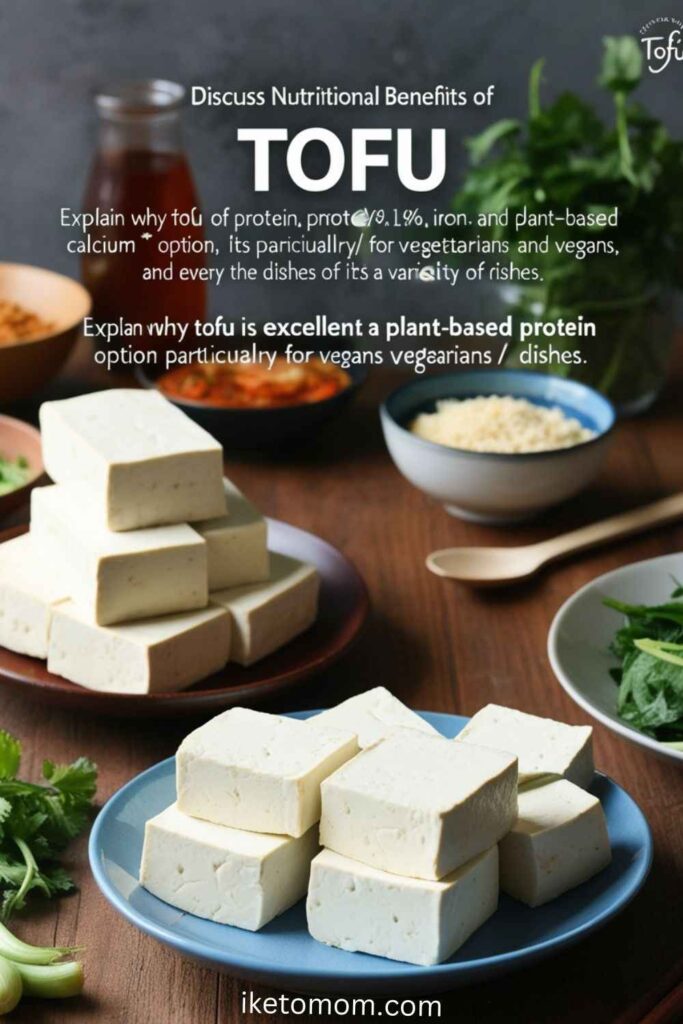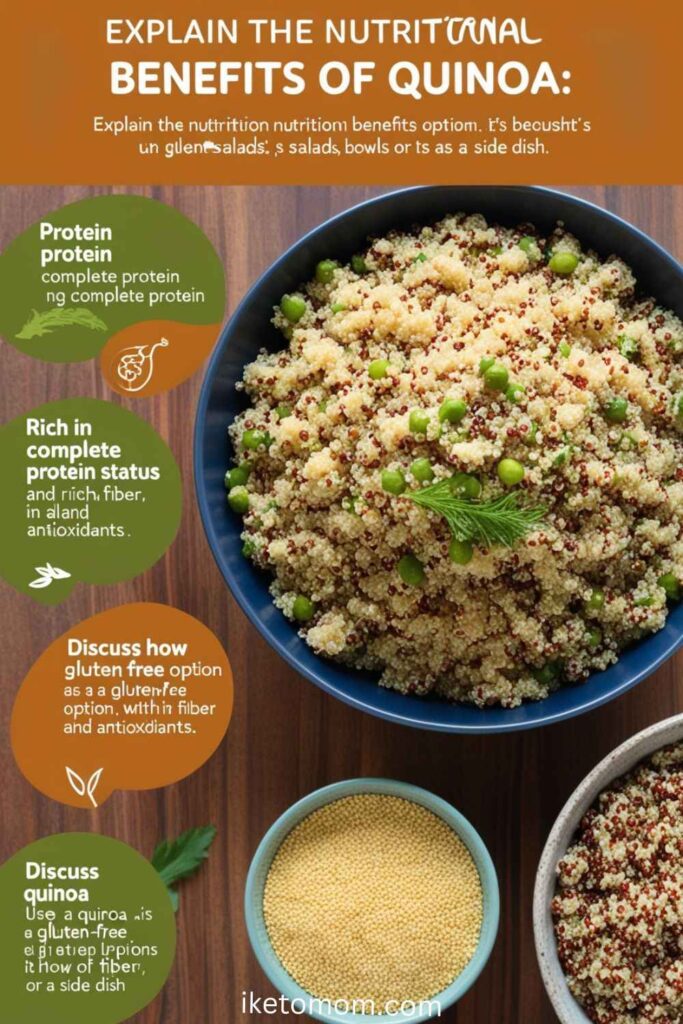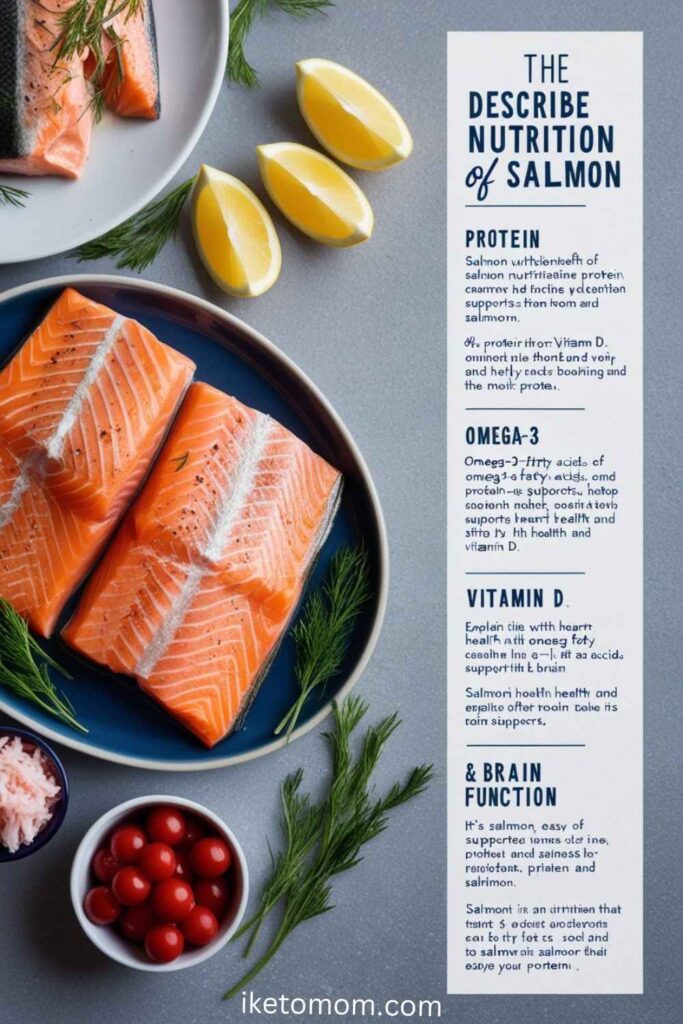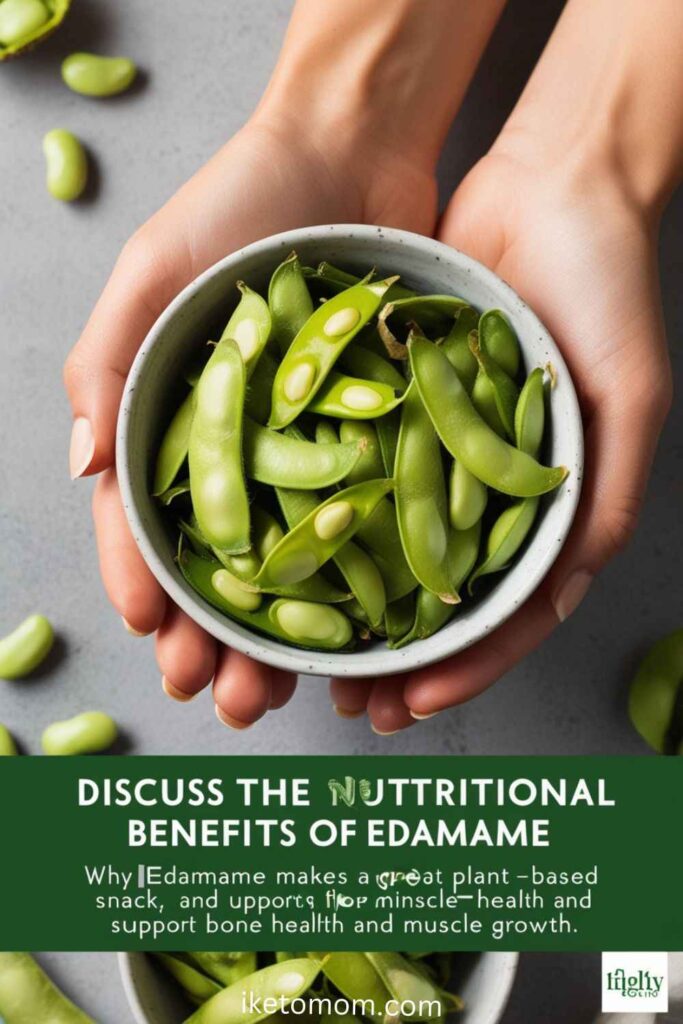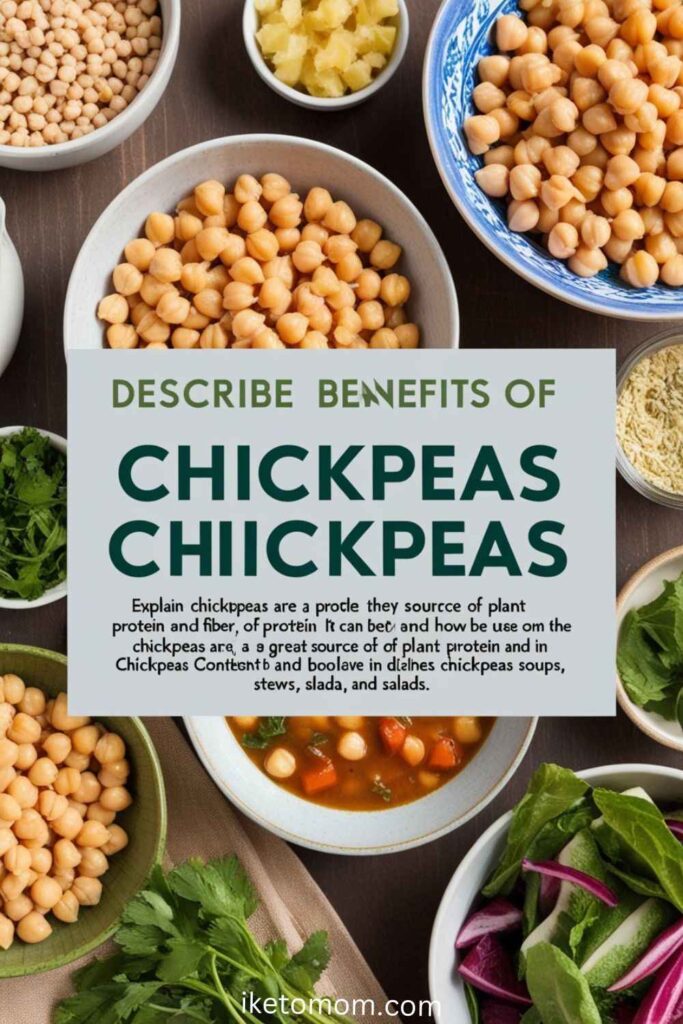5 Food That Are High In Protein Ideas : Protein is an essential nutrient that plays a key role in maintaining a healthy and balanced diet. It is a building block for muscle, skin, enzymes, and hormones, and is crucial for the body’s growth, repair, and immune functions. As one of the three macronutrients—along with carbohydrates and fats—protein is vital for various bodily processes, making it indispensable for overall health.
Incorporating high-protein foods into your daily meals is simpler than you might think. Whether you are preparing a hearty breakfast, a quick snack, or a full dinner, there are numerous options to boost your protein intake. Foods like eggs, lean meats, legumes, dairy, and plant-based proteins can be easily added to your diet, making it possible to enjoy a variety of delicious, nutritious meals.
Consuming adequate protein has several important benefits. It aids in muscle repair and growth, which is particularly important after exercise or physical activity. Protein also supports weight management by promoting feelings of fullness, which helps to control hunger and prevent overeating. Additionally, protein is essential for maintaining bone density, producing enzymes and hormones, and supporting a strong immune system. With its many health benefits, ensuring you get enough protein each day is an important part of a well-rounded, nutritious diet.
5 Food That Are High In Protein Ideas
1. Chicken Breast
Nutritional Information:
Chicken breast is an excellent source of lean protein, offering about 26 grams of protein per 3 ounces (85 grams). It is low in fat, with roughly 3 grams of fat per serving, and is rich in essential vitamins and minerals, including B vitamins (like niacin and vitamin B6), phosphorus, and selenium.
Benefits:
- Supports Muscle Growth: Due to its high protein content, chicken breast is ideal for promoting muscle growth and repair, especially after exercise.
- Low-Calorie Option: Being low in fat and calories, chicken breast is a great choice for those looking to manage their weight while maintaining muscle mass.
- Versatile for Various Meals: Chicken breast can be grilled, baked, sautéed, or added to soups, salads, and stir-fries. Its mild flavor makes it adaptable to a wide range of cuisines and dishes.
2. Eggs
Nutritional Information:
Eggs are a nutrient-dense food, offering about 6 grams of high-quality protein per large egg. They are rich in essential amino acids, which are crucial for muscle repair and overall body function. In addition to their protein content, eggs are an excellent source of vitamins D and B12, both of which support bone health and energy production.
Benefits:
- Affordable: Eggs are an inexpensive protein source, making them accessible to most people and a great option for those on a budget.
- Easy to Prepare: Eggs can be cooked in numerous ways—boiled, scrambled, fried, or poached—making them quick and convenient for any meal.
- Great for Breakfast or Snacks: Eggs are an ideal food for breakfast, providing lasting energy throughout the morning. They also make for a satisfying snack, either on their own or paired with vegetables or whole grains.
3. Greek Yogurt
Nutritional Information:
Greek yogurt is a protein-packed dairy option, containing 10-15 grams of protein per 6-ounce serving. It is also rich in calcium, which supports bone health, and contains probiotics, beneficial bacteria that promote gut health and digestion.
Benefits:
- Supports Digestive Health: The probiotics in Greek yogurt help maintain a healthy balance of gut bacteria, which is essential for digestion and overall immune function.
- Great Snack or Smoothie Base: Greek yogurt is a versatile food, perfect as a quick snack or as the base for smoothies. It pairs well with fruits, nuts, and honey for a nutrient-dense, satisfying treat.
4. Lentils
Nutritional Information:
Lentils are a fantastic plant-based protein source, offering 18 grams of protein per cup when cooked. They are also high in fiber, which aids in digestion and helps maintain stable blood sugar levels, as well as iron, which supports healthy red blood cell production.
Benefits:
- Plant-Based Protein: Lentils are an excellent protein option for vegetarians and vegans, providing a substantial amount of protein without the need for animal products.
- Supports Heart Health: The fiber, along with antioxidants and other nutrients in lentils, helps reduce cholesterol levels and supports overall cardiovascular health.
5. Cottage Cheese
Nutritional Information:
Cottage cheese is a high-protein dairy option, offering 14 grams of protein per half-cup serving. It is also low in fat and carbohydrates, making it a great choice for those looking to maintain a balanced diet without excess calories.
Benefits:
- Rich in Calcium: Cottage cheese is a good source of calcium, which is vital for maintaining strong bones and teeth.
- Supports Bone Health: The calcium, along with other nutrients in cottage cheese, helps support bone density and overall skeletal health.
- Versatile in Both Sweet and Savory Dishes: Cottage cheese can be enjoyed in a variety of ways, whether paired with fruit and honey for a sweet snack or added to salads, baked goods, or savory dishes for extra protein.
6. Tofu
Nutritional Information:
Tofu is a great plant-based protein source, offering 10 grams of protein per ½ cup. It is also rich in iron and calcium, essential minerals that support overall health, including bone strength and oxygen transport.
Benefits:
- Plant-Based Option: Tofu is an ideal protein choice for vegetarians and vegans, offering a versatile and nutrient-dense alternative to animal-based proteins.
- Great for Vegetarians and Vegans: Tofu provides essential amino acids and other nutrients needed for a balanced diet, making it a staple in plant-based eating.
- Can Be Used in a Variety of Dishes: Tofu can be grilled, stir-fried, baked, or blended, making it incredibly adaptable for savory dishes like stir-fries or curries, and even sweet dishes like smoothies or desserts.
7. Quinoa
Nutritional Information:
Quinoa is a highly nutritious grain, providing 8 grams of protein per cooked cup. It is a complete protein, meaning it contains all nine essential amino acids, making it a valuable source of protein for vegetarians and vegans. Additionally, quinoa is rich in fiber and antioxidants, which support digestive health and protect against inflammation.
Benefits:
- Gluten-Free: Quinoa is naturally gluten-free, making it an ideal choice for those with gluten sensitivities or celiac disease.
- Easy to Incorporate: Quinoa is versatile and can easily be added to salads, grain bowls, or served as a side dish. Its mild, slightly nutty flavor complements a variety of meals and cuisines.
8. Salmon
Nutritional Information:
Salmon is a nutrient-dense fish, offering 22 grams of protein per 3 ounces (85 grams). It is also rich in omega-3 fatty acids, which are beneficial for heart health, and provides a good amount of vitamin D, essential for bone health and immune function.
Benefits:
- Heart-Healthy: The omega-3 fatty acids found in salmon help reduce inflammation, lower cholesterol levels, and promote overall cardiovascular health.
- Supports Brain Function: Omega-3s are also known for their positive effects on brain health, improving cognitive function and reducing the risk of mental decline.
- Easy to Prepare: Salmon is quick and simple to cook, whether grilled, baked, or pan-seared, making it an easy addition to a healthy meal.
9. Edamame
Nutritional Information:
Edamame, or young soybeans, are an excellent plant-based protein source, offering 17 grams of protein per cup. They are also rich in fiber, as well as essential vitamins and minerals like vitamin K, folate, and iron, contributing to overall health.
Benefits:
- Great Plant-Based Snack: Edamame is a convenient and satisfying snack that provides a healthy dose of protein, fiber, and nutrients without being high in calories.
- Supports Bone Health and Muscle Growth: The combination of protein, vitamins, and minerals in edamame helps support bone density and muscle development, making it a great option for maintaining overall strength and health.
10. Chickpeas
Nutritional Information:
Chickpeas are a nutrient-dense legume, offering 15 grams of protein per cooked cup. They are also rich in fiber and antioxidants, which support digestive health and help protect the body from oxidative stress.
Benefits:
- Good Source of Plant Protein: Chickpeas provide a substantial amount of protein for those following a plant-based diet, making them an excellent alternative to animal protein sources.
- Great for Soups, Stews, and Salads: Chickpeas are versatile and can be used in a variety of dishes, including soups, stews, and salads, or roasted as a crunchy snack.
FAQ
Why is protein important in my diet?
Protein is essential for muscle growth, tissue repair, immune function, and overall health. It helps with satiety, making you feel fuller for longer, and is necessary for producing enzymes and hormones that regulate various body functions.
Can I get enough protein from plant-based foods?
Yes, many plant-based foods, such as lentils, quinoa, chickpeas, and edamame, are excellent sources of protein. Combining different plant-based protein sources ensures you get all the essential amino acids your body needs.
How can I incorporate these high-protein foods into my meals?
You can add chicken breast to salads or sandwiches, enjoy Greek yogurt with fruits and nuts as a snack, or use tofu and lentils in stir-fries, soups, and bowls. Many of these foods are versatile and can be included in breakfast, lunch, or dinner.
Are these high-protein foods suitable for weight loss?
Yes, many high-protein foods, like chicken breast, eggs, and Greek yogurt, are low in calories and fat while providing a substantial amount of protein. They can help with weight management by increasing satiety and supporting muscle retention during weight loss.

I’m Priscilla Swahn, a registered dietitian with a master’s degree in nutritional sciences. With over a decade of experience in holistic nutrition, I specialize in creating delicious keto recipes to help you enjoy a healthy lifestyle. On iKetoMom, you’ll find a variety of recipes for every meal—hearty breakfasts, satisfying lunches, mouthwatering dinners, indulgent desserts, and refreshing drinks. My recipes make keto living easy and enjoyable for the whole family. Featured in EatingWell and MindBodyGreen, I also collaborate with health centers and corporate companies to share my expertise. Join me and discover the joy of keto cooking!

